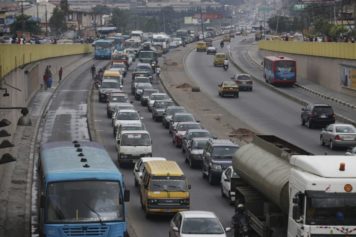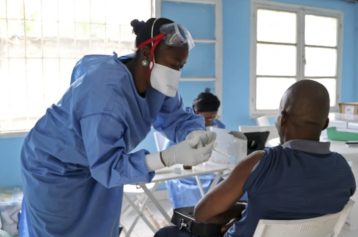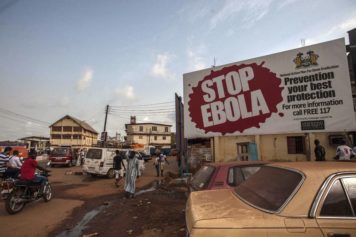Health officials in Liberia are painting a picture of a nation so devastated by the Ebola virus that they fear it might be on the verge of collapse.
While things have been bad in Liberia, the worst-hit of the West African nations, for months, the fallout from the spread of the disease now seems to be affecting every part of the nation of 4 million.
With a death toll that has passed 1,200 (accounting for more than half of the 2,400 deaths in West Africa) and a caseload of 2,046 (which is nearly half of West Africa’s total of 4,784), Liberia is where the deadly disease is doing the most damage. The World Health Organization said Monday that the cases in Liberia are “increasing exponentially” and WHO director Margaret Chan said the caseload of 4,780 is likely an underestimate.
Saying the number of cases is rising faster than authorities’ ability to manage them, Chan asked for the world community to send additional health care workers, medical supplies and aid to the worst-affected countries of Guinea, Sierra Leone and Liberia.
Cuba responded by announcing it would send 165 doctors and nurses to Sierra Leone.
The International Monetary Fund said Thursday that Ebola has crippled the mining, agriculture and service sectors in Liberia and neighboring Sierra Leone, according to Reuters.
Ebola “is now spreading like wildfire, devouring everything in its path. The already weak health infrastructure of the country has been overwhelmed.”
That catastrophic view was echoed by U.N. special envoy to Liberia, Karin Landgren, who told the Security Council, “Liberians are facing their gravest threat since war,” referring to two civil wars between 1989 and 2003 that left more than 250,000 dead.
Liberia was still recovering from those horrific conflicts when Ebola hit.
“The Ebola crisis has become complex, with political, security, economic and social implications that will continue to affect the country well beyond the current medical emergency,” Landgren said.
After the WHO projected that the total number of infections in West Africa could reach 20,000 — and at least one long-term model put the number north of 100,000 — local residents are terrified.
“I am afraid,” 45-year-old Kluboh Johnson told the AFP. “I don’t know what to do now actually. Where are we going? Are we all going to die? If WHO can say this kind of thing it means we are finished.”
“We are overwhelmed,” Sophie Jane, a spokeswoman for Doctors Without Borders, told AFP on Wednesday at an Ebola unit in Monrovia. “The patients keep coming in (huge) numbers.”


